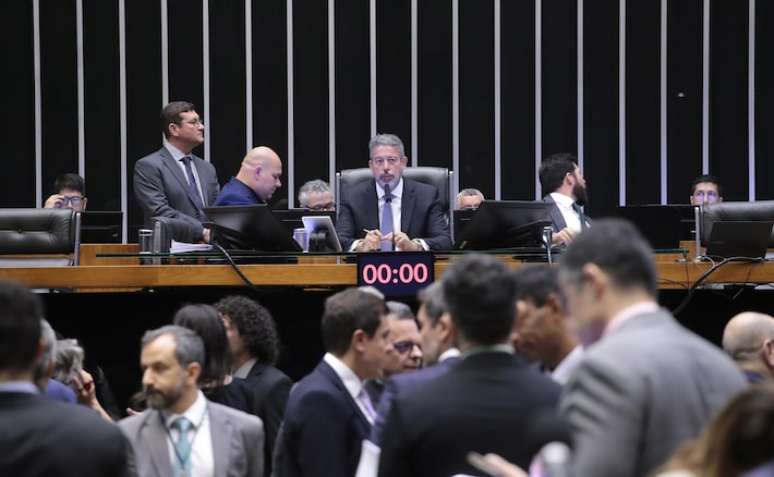The tariff applies to foreign multinationals with an annual turnover exceeding 750 million euros; the text goes to the Senate
BRASILIA – The Chamber of Deputies approved on Tuesday 17th, with a symbolic vote, the bill sent by the government which creates a global minimum tax of 15% on the profits of multinationals in the country. The text now passes to the Senate.
The project proposes an additional social contribution on net profit (CSLL), a tax charged on corporate profits, to adapt Brazilian legislation to global rules against tax base erosion – GloBE Rules.
The tax applies to foreign multinationals with an annual turnover exceeding 750 million euros. Follows pillar 2 of Organization for Economic Co-operation and Development (OECD)which establishes an effective minimum tax rate – i.e. an average that takes into account all the taxes that companies already pay – for these large companies globally.
The measure is part of Finance Minister Fernando Haddad’s strategy to fight so-called fiscal erosion and increase revenue. However, according to government estimates, the proposal will not have any impact on the 2025 budget.
The expectation is to raise around R$8 billion per year when there is “stability”, expected after 2029. From 2026 onwards, however, it will be possible to start verifying the impact on the budget.
The Federal Revenue Service will regulate this charge, including currency conversion, adjustments to be made, and the entire regulatory framework. These standards will be periodically updated to adapt them to the reference documents approved by the OECD.
The project already contains definitions of the constituent entities of groups of multinational companies and the GloBE profit or loss concepts for each of them. Also listed are the covered taxes adjusted by these companies and those that will not be taken into account in this calculation. The text also explains the logic behind the formation of the effective tax rate and the transition rules.
Universal basic taxation
The rapporteur of the bill, MP Joaquim Passarinho (PL-PA), inserted into the text a provision that extends the universal basic taxation mechanisms (TBU) until 2029. Today they are valid only until the end of this year . The TBU concerns tax rules that affect the profits of Brazilian multinationals abroad.
According to the parliamentarian, until the revision of the TBU regime is carried out, “it is urgent and necessary to guarantee a new extension of these instruments to maintain neutrality and avoid that, starting from 2025, Brazilian multinationals start operating at a serious disadvantage compared to foreign multinationals”, reads one opinion.
“In order to prevent a possible reformulation of the national system of taxation of the profits achieved by the subsidiaries/associated companies abroad as a whole, it is imperative that the alleged 9% credit securities, as well as the possibility of consolidating the results of the subsidiaries located abroad,” the report reads.
Passarinho also inserted an article which authorizes the Executive to convert in whole or in part, starting from 2026, without prejudice to the beneficiary, the tax incentives of the Superintendency for the Development of the North East (Sudene) and the Superintendency for the Development of ‘Amazon (Sudam) in a financial credit classifiable as “Qualified Refundable Tax Credit”. This credit can be used to offset debts to the Union.
According to the speaker, this article was included as a compensation in case the government does not send a new TBU project or Congress itself does not consider the issue. “If we didn’t lose everything, so as not to lose everything, we would maintain this condition,” he told the Station/Broadcastin the section relating to tax incentives for Sudam and Sudene. “We ask the (federal) Revenue Agency to send a new TBU project in 6 months, because we will review all this legislation,” he reinforced.

Source: Terra
Rose James is a Gossipify movie and series reviewer known for her in-depth analysis and unique perspective on the latest releases. With a background in film studies, she provides engaging and informative reviews, and keeps readers up to date with industry trends and emerging talents.






